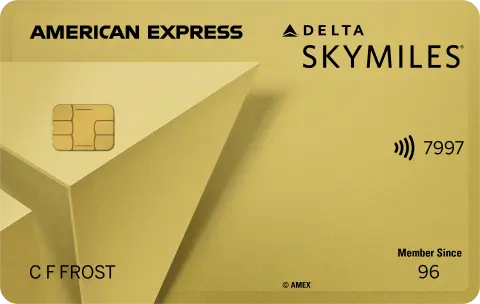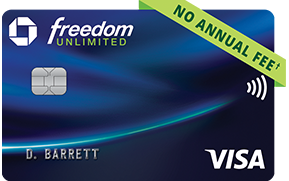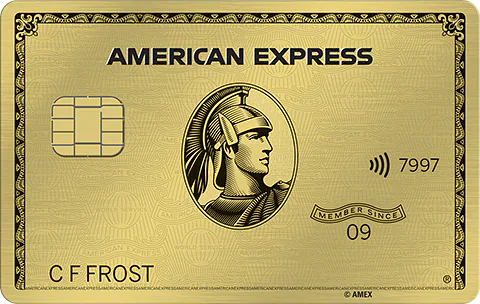Retailers in partnership with banks and credit card companies launch co-branded retailer credit cards. This partnership is specific to a retailer. These cards offer extra discounts at the retailer or at a group of affiliated retailers. They may also offer extra discounts on certain items on using the credit card. Some retailers may offer free shipping or extra return periods on using these cards.
These credit cards offer the same features as regular credit cards. A card member needs to pay the dues as any other card. If you carry any balance beyond the last date there is a delayed fee and interest.
Why use co-branded retailer credit cards
Retailer co-branded credit cards may be attractive to loyal consumers. If a shopper frequents a particular retailer they earn rewards on their purchases. It’s important to review the terms and conditions of these cards. They may have higher interest rates or fees compared to other credit cards.
It’s also a good idea to compare the rewards and benefits of different credit cards. Co-branded retailer credit cards might not offer the best deal from the issuer bank. Regular rewards credit cards may offer better deals than co-branded cards.
Best co-branded retailer credit cards
Here is our list of some of the best co-branded retailer credit cards:
#1 Card Name: Target Red Credit Card

Fees: $0 joining or annual fees
APR: 28.90% variable APR
Rewards: 5% off on Target stores and also on Target.com on eligible purchases. Customers earn 2% on dining out and gas purchases and 1% rewards elsewhere
Our Rating: 2 / 5
Pros and Cons of this Card: Firstly, Target Red Card offers free 2 days shipping on thousands of items on Target.com. Next, this card has exclusive special items and offers. Next, card members get extra 30 days of return and exchange time on any purchases in Target. On the other hand, this card has a high APR. Discounts are better if a card member shops at Target, elsewhere the card offers only 1% rewards. Further, the members can redeem the rewards or cashback for only Target Gift Cards.
#2 Card Name: Costco Anywhere Visa Card by Citi

Fees: This card is offered free with a $0 annual fee with a valid Costco membership.
APR: 19.49% -29.49% variable APR on purchases and cash advances.
Rewards: Card members earn 4% rewards on the gas and EV charging up to $7,000 per year. In addition, they can earn 3% rewards on restaurants and travel. Further, 2% rewards on eligible purchases in Costco stores and Costco.com and 1% rewards on all other purchases.
Our Rating: 3 / 5
Pros and Cons of this Card: This credit card costs $0 in fees with an existing paying Costco membership. Further, card members do not need a separate membership to Costco. The credit card works as a Costco membership card. Costco offers members exclusive discounts for credit card holders. Card members can add more family members to these cards, and they can earn cashback on their purchases as well. Finally, Card members can redeem cashback against an annual certificate for redeeming merchandise at US Costco stores
#3 Card Name: Amazon Prime Rewards Visa Credit Card

Fees: $0 with a valid Amazon Prime membership
APR: 17.99% – 25.99% variable APR
Rewards: Card members earn a $150 welcome Amazon Gift Card upon approval of a new credit card. Further, members earn 5% back in rewards on Amazon.com and Whole Foods Market. They also earn 2% rewards in restaurants and gas stations and 1% rewards on the rest of their purchases.
Our Rating: 3/5
Pros and Cons of this Card: Firstly, this card requires the card members to have a valid Amazon Prime membership. This is good for existing card members. The current cost of the Prime membership is $39 per month. Card members earn bonus rewards of 10% cashback on selected merchandise. This card also provides travel emergency insurance and lost baggage insurance.
#4 Card Name: Capital One Walmart Rewards Card
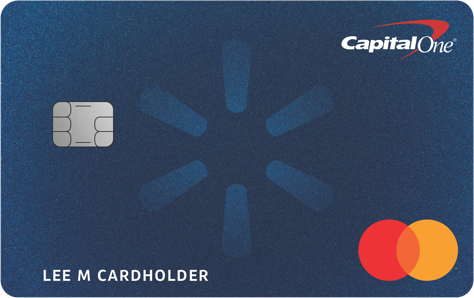
Fees: This card is offered with Zero fees to the card members.
APR: 17.99% – 27.74% variable APR
Rewards: Card members can earn 5% cash back on Walmart.com. The card also offers 2% cash back in Walmart stores, fuel stations, restaurants, and travel spends. Further, it offers 1% cash back on other purchases
Our Rating: 3 / 5
Pros and Cons of this Card: Card members earn 5% cashback while paying in Walmart stores using Walmart Pay. They can also redeem the cashback for the statement credit. This cashback can be set off for any sale in the Walmart store. Card members can redeem it for gift cards or travel purchases.
#5 Card Name: Macy American Express Card
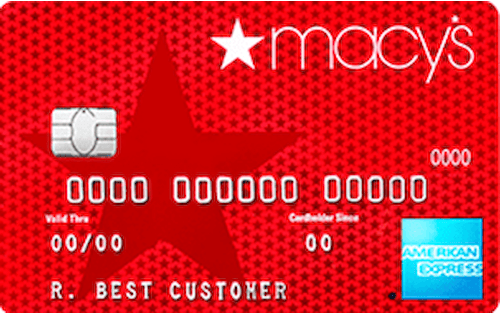
Fees: Card members get this card for $0 in annual fees. There is a cash advance fee of 4% and a foreign transaction fee of 3% on this card.
APR: 30.99%
Rewards: Macy’s offers a 20% discount totaling $100 for 2 days on the card approval.
Our Rating: 3 / 5
Pros and Cons of this Card: Macy’s offers three credit cards for their loyal customers. For, annual shopping up to $500 they offer a silver card. Card members with annual spending from $500 to $1,199 qualify for a Gold card. Finally, for members with annual spending above $1200 qualifies for a platinum card.
Card members can earn 3 points per $1 spent at restaurants including delivery. For every $1 spent at gas stations and supermarkets, card members earn 2 points. This credit card also offers exclusive shopping days with bonus rewards for shoppers at Macy’s. This credit card offers birthday surprises for its card members. Further card members get free shipping for orders of more than $25. For gold and platinum credit cards there is no minimum order amount to qualify for free shipping. Finally, this card has one of the highest APRs at 30.99%.
#6 Card Name: myWalgreens Master Credit Card
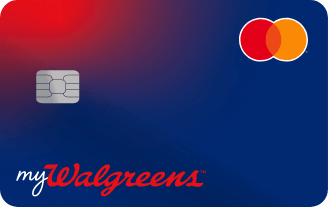
Fees: $0 in annual fees. A cash advance fee of 4% and a foreign transaction fee of 3%.
APR: 20.99% – 29.99% variable APR
Rewards: A one-time $25 cash reward on making any purchase within 45 days of opening a new credit card account. Walgreens also offers a 10% reward on self-branded products. There are also 5% cashback rewards on purchasing other brands.
Our Rating: 4 / 5
Pros and Cons of this Card: Firstly, Walgreens Mastercard offers extra rewards at Walgreens stores, Duane Reade, and Walgreens.com. This card though co-branded with Walgreens also offers 3% rewards on grocery and health & wellness products bought outside Walgreens. For the rest of the purchase, this card offers 1% rewards.
#7 Card Name: Home Depot Consumer Credit Card

Fees: This card has $0 in annual fees. Card members have to pay a cash advance fee of 4% and a foreign transaction fee of 3%.
APR: 17.99% – 26.99% variable APR
Rewards: Card members earn a one-time reward of up to $100 cash reward on making purchases above $1,000.
Our Rating: 3 / 5
Pros and Cons of this Card: Credit card members get one year to return any product they get from Home Depot. Card members get 6 months of 0% interest financing on purchases of more than $299 if paid in full in time. On special promotions, this financing will increase to 2 years
#8 Card Name: My BestBuy Visa Card
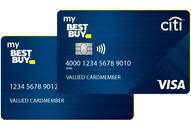
Fees: Annual fee for this card vary and could be $0 – $59 in the annual fee. Minimum $5 or 5% of the balance transfer fee.
APR: 27.99% – 29.99% variable APR
Rewards: Card members earn 5% rewards on shopping at bestbuy.com or at the BestBuy stores. This card also offers 18 months of free financing on purchases above $499.
Our Rating: 3 / 5
Pros and Cons of this Card: Bestbuy visa card offers financing options on purchases in the store or bestbuy.com. Card members earn 3% cash back in rewards for buying gas. They also earn 2% back in rewards on grocery, dining, and takeout. There is 1% cash back in rewards on other purchases. Finally, Bestbuy runs promotional offers on high-priced items including free financing options
#9 Card Name: Kroger Rewards World Elite Mastercard
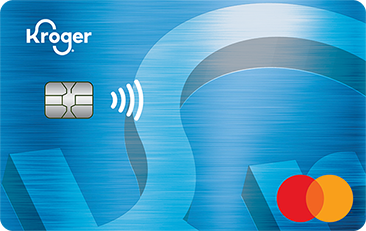
Fees: $0 in the annual fee and foreign transaction fee. The balance transfer fee of 4% of the balance transfer amount
APR: 18.24% – 29.24% variable APR
Rewards: 5% rewards on shopping at bestbuy.com or the BestBuy stores. 18 months of financing on purchases above $499.
Our Rating: 2 / 5
Pros and Cons of this Card: Kroger rewards card offers 5% rewards on mobile wallet purchases for the first $3,000 spent. Card members earn 1% rewards for spending above $3,000. Members earn 2% rewards in the Kroger stores. For the rest of their purchase, they earn 1% rewards. Kroger Mastercard also offers an additional discount on fuel purchases at Kroger Pumps. The terms and conditions of the card are available on the Kroger website.
Some advantages of using Co-branded retailer credit cards
- Firstly, retailer credit cards offer better rewards or discounts on shopping at the c-branded retailer. These rewards are available to cardholders for purchases made at the retailer. These rewards may include points or cash back on every dollar spent. Certain items or inventory may carry bonus discounts or points. Usually, high-priced items may carry extra discounts if purchased using co-branded credit cards.
- For loyal shoppers getting a co-branded credit card offers extra discounts. It makes sense to apply for such credit cards if a customer frequents a particular retailer.
- Next, retailer credit cards may offer special promotions or sales to cardholders. This may be through early sales days, exclusive discounts, or early access to new products.
- Further, it is often easier to qualify for a retail credit card compared to a traditional credit card. People with fair credit scores may also qualify for the same. The approval process is usually less stringent. Retailer credit cards have a higher APR as compared to normal credit cards.
- Finally, retailer credit cards may offer extra customer service benefits. These could include extended return periods for any items bought on a credit card. Concierge services or fitting services are free of cost for credit card members.
Disadvantages of using retailer credit cards
Evidently, there are several potential disadvantages to using a co-branded retailer credit card. These may include:
- First of all, retailer credit cards provide the best discounts only at the retailer or affiliated retailers. This may be a little inconvenient if you shop at other stores or online at eCommerce stores.
- Next, these credit cards in the hands of frequent shoppers may spiral them into a debt spiral.
- These credit cards may charge higher APR compared to other normal credit cards. This can make them more expensive to carry a balance on.
- Retailer credit cards may charge annual fees or membership fees. They may also levy other fees such as late payment fees or balance transfer fees. As such, this can add to the cost of using these credit cards.
- Co-branded retailer credit cards offer limited rewards and benefits from the bank. Rewards credit cards by participating banks may offer better deals and rewards. For example, a retailer credit card may only offer rewards for purchases made at the retailer. A rewards credit card may offer rewards for purchases made anywhere. Similarly, travel credit cards may offer better deals and discounts on travel-related purchases.
- Finally, retailer credit cards may not be as effective at helping you build your credit history. They may not report the credit history to the three credit bureaus.





